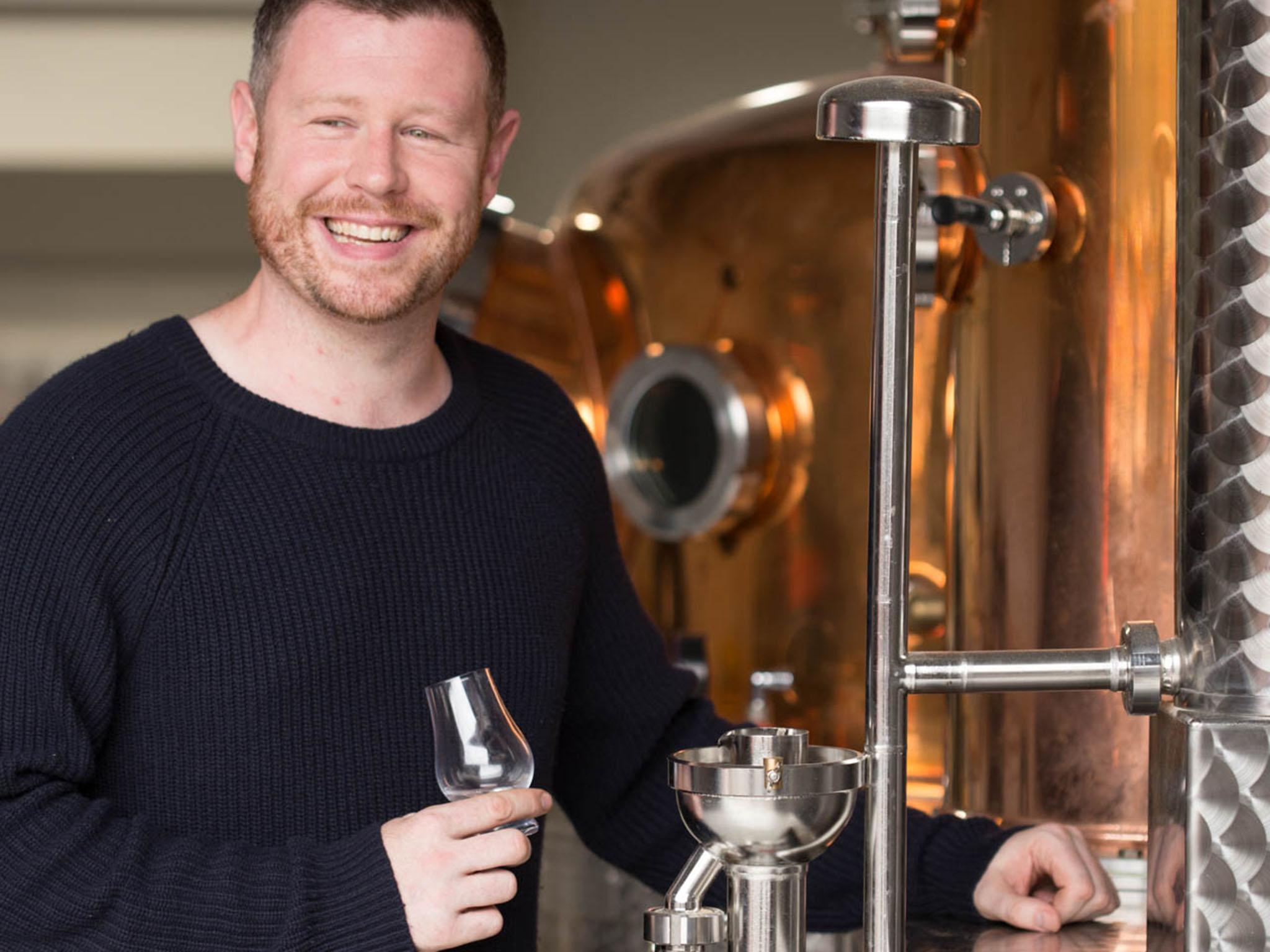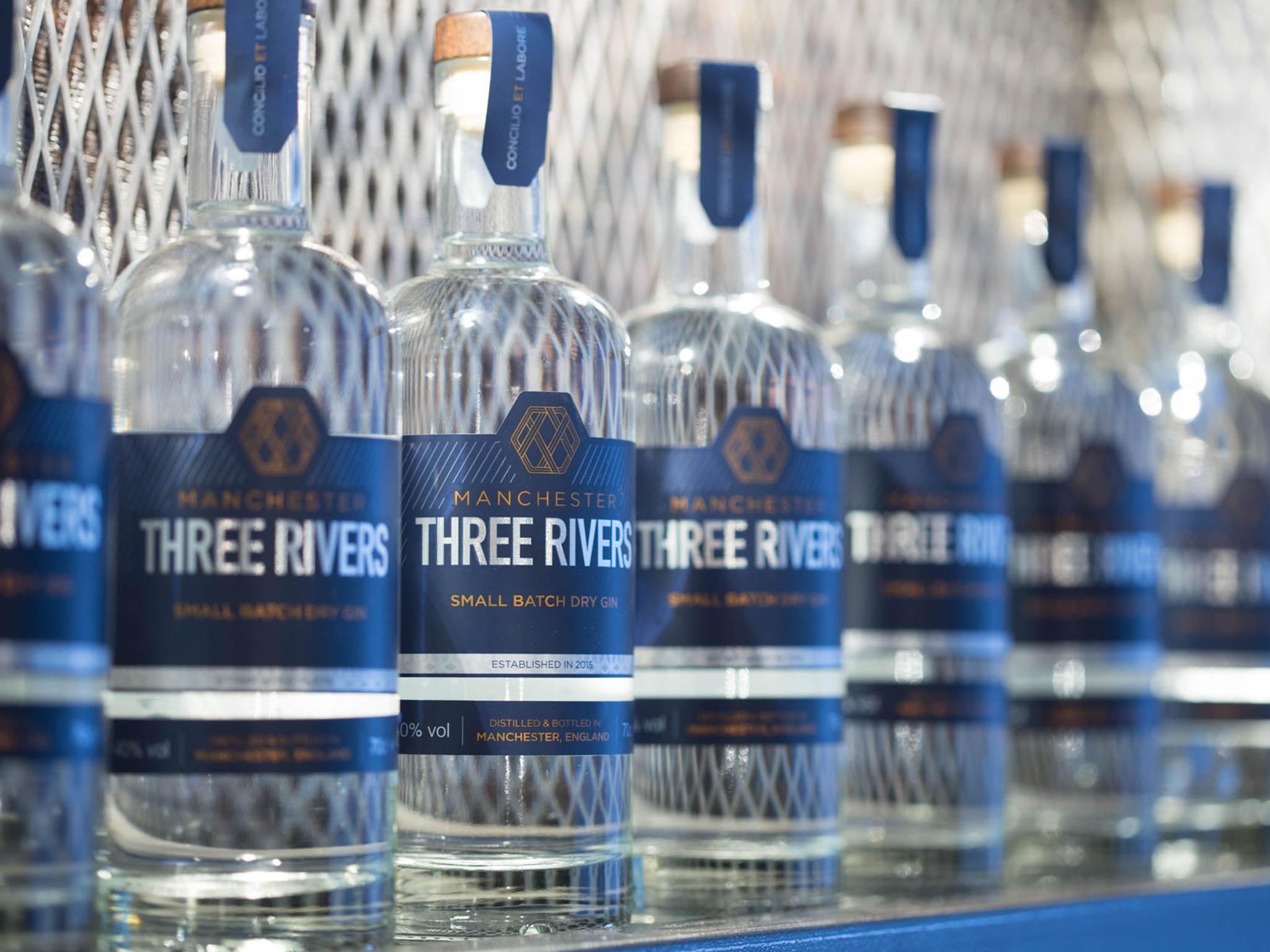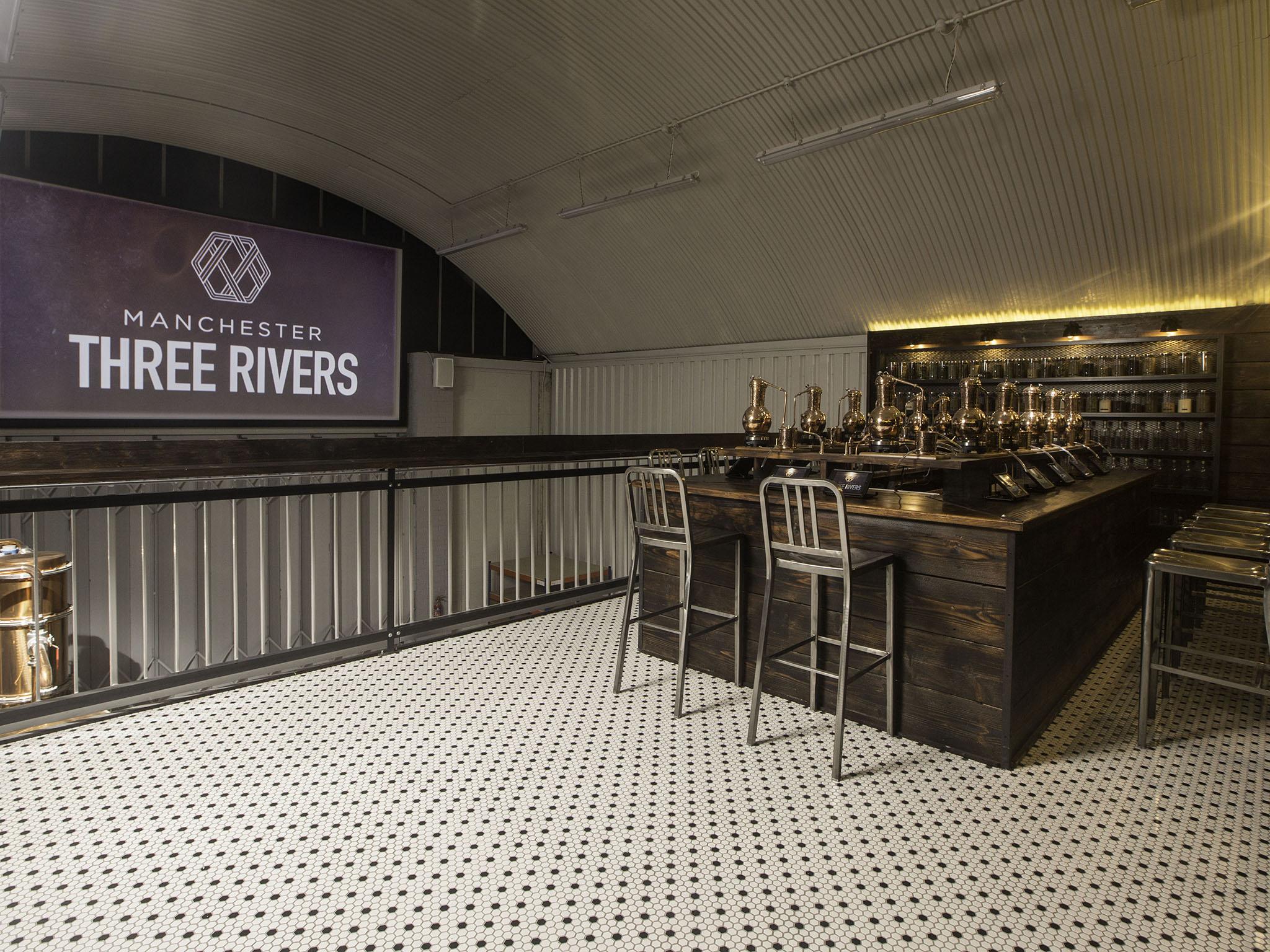The Independent's journalism is supported by our readers. When you purchase through links on our site, we may earn commission.
World Gin Day: Manc’s berry own
In the run-up to World Gin Day on 10 June, Dave Rigby talks about the in and outs of running the first gin distillery in Manchester

Your support helps us to tell the story
From reproductive rights to climate change to Big Tech, The Independent is on the ground when the story is developing. Whether it's investigating the financials of Elon Musk's pro-Trump PAC or producing our latest documentary, 'The A Word', which shines a light on the American women fighting for reproductive rights, we know how important it is to parse out the facts from the messaging.
At such a critical moment in US history, we need reporters on the ground. Your donation allows us to keep sending journalists to speak to both sides of the story.
The Independent is trusted by Americans across the entire political spectrum. And unlike many other quality news outlets, we choose not to lock Americans out of our reporting and analysis with paywalls. We believe quality journalism should be available to everyone, paid for by those who can afford it.
Your support makes all the difference.What do you think gives gin such a memorable taste?
Gin today is incredibly diverse. I would say that the more memorable gins would be the ones which deviate from a traditional path and take greater risks in terms of flavour and texture.
Why did you choose gin of all spirits?
I felt it was gin’s time. I knew it was a category that was set to grow rapidly and on which there would be a lot of focus over the next few years. I knew it was beginning to excite consumers and I wanted to be part of the renaissance. Also, gin is an accessible spirit in terms of its creation.

Can you describe the taste of the Manchester Three Rivers gin?
It’s a well-balanced and complex gin that delivers mid-palate sweetness through botanicals like vanilla, cinnamon and almond. It uses oats to help create a smooth, creamy texture, which to us is equally as important as the taste. Finally, we use black pepper to temper the sweetness and give a long, spicy finish.
How do you make your gin unique from others?
For me, I wanted to create a gin with a unique flavour, profile and texture. Something that people could recognise as gin but hopefully delivers something a little different to what they know.
What do you think makes Manchester a good location to have a gin distillery?
Manchester is an industrious and creative city. I was trying for three years before we opened to find a space and make it happen. Frankly I am amazed that no one built a distillery sooner.
How do botanicals play a part in the distillery process?
Botanicals are the elements which bring flavour to gin. In a London dry gin, all the flavour has to come from the rectification process, so all the flavour is coming from the botanicals.
What’s the process like for distilling your gin?
We create everything by hand using our custom made 450l Arnold Holstein copper pot still. Our base spirit is a neutral grain spirit made from British wheat. We source our botanical from all over the world from Macedonia to Valencia to Madagascar. The cooking process takes around 14 hours and we can produce around 550 bottles per batch.
Why do you think it’s important to include a little bit about Manchester’s industrial heritage in your gin tours?
Manchester’s heritage is at the heart of what we do. We could have made a gin four years ago if we had been content to do it in Trafford, Salford or in our kitchen at home. But we didn’t want any ambiguity about the gin being a truly, honest Manchester product. We wanted to create something the city could be proud of and point to as a symbol of its continuing regeneration and relentless creative output, which these days is as much about food, drink and hospitality as it is about music and other forms of culture.
What do you want people to get out of the gin tours?
We call it a gin experience as we feel it’s more than a tour as it’s somewhere between a tour, a tasting and a seminar where people can learn the history of gin, a bit about our history, tour the production facility, drink a variety of gin cocktails and finally create their own bottle of gin from scratch using grain spirit and any number of the 50 botanicals we have available.
What inspired you to become involved in the distillery business?
I have spent my life visiting breweries, vineyards and distilleries and was inspired by the process of creation, the unique methodologies as well and the diversity in the flavours, textures, aromas I was witnessing.
At the time I decided to try and build a distillery and create a gin, I owned a small café bar in a suburb of Manchester. My real skills lay in identifying interesting and exciting products, learning about the people who created them and the stories behind them. Then in turn relaying this information to my customers to add value to the drinks they were buying.
Around this time I was lucky to meet some fantastic people in the gin game such as Tom Warner and Sion Edwards at Warner Edwards and Jamie Baxter of Burleigh’s, who would go on to be my mentor. These people inspired me and gave me the confidence to believe that building the distillery and creating a gin was something that I could really do.

What’s your favourite way to drink gin?
My favourite way to drink my gin is straight at room temperature.
How do you celebrate World Gin Day?
This year we will be celebrating it at one of Manchester’s finest bar/restaurants Tariff and Dale which among other things is noted for its excellent gin selection and cocktail menu.
What do you want Three Rivers to be known for?
I want Manchester Three Rivers as a brand to be known for a number of things. In terms of the gin, I want people to think of it as a well balanced, complex and elegant London Dry gin. We want to remain relevant in the industry by contributing to the creative community of distillers and brewers within the UK and further afield. We want to collaborate with and learn from our peers as well as inspire the next generation of producers in the way I was inspired by those that came before me.
What’s your favourite aspect about being a distiller?
It’s the opportunity to meet so many interesting people from all over the world. We understand the negative impact that alcohol can have, but treated with respect it can be a great way to bring people together. The opportunity to create is something that is essential to me too.
What’s your favourite gin aside from Three Rivers?
I really enjoy Warner Edwards Harrington Dry. Four Pillars from Melbourne is a very fine gin and I have to give a shout to Burleigh’s from Leicester made by my mentor and friend Jamie Baxter.
What were your initial goals in opening up Three Rivers?
To create a unique gin with its own identity and to build a the first distillery in modern times in the city centre. And really to engage people, demystify the process of production and allow them to participate in the creative process.
What do you think is the worst way to drink gin?
Warm with flat tonic water and a slice of wilted lemon. Basically how 90 per cent of Britain has been drinking it for the past 30 years.
Join our commenting forum
Join thought-provoking conversations, follow other Independent readers and see their replies
Comments